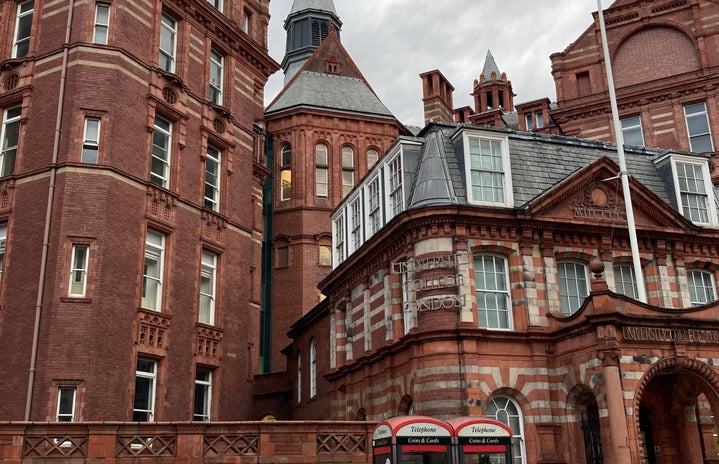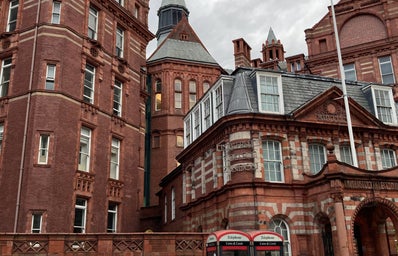/
This year’s leavers have had a completely abnormal university experience in its totality. Those who started in 2019-2020 had their first year cut short due to the Covid-19 pandemic, the following year all took place online (even worse for the freshers in 2020-21 too) and now this … a Marking and Assessment Boycott (MAB) meaning that the first ‘proper’ year at university has ended with the strangest sensation, a feeling of being unfinished. (Funnily enough, it was my year abroad last academic year that felt like the only year of relative – and I emphasise ‘relative’ – normality.)
Members of the University and College Union (UCU) took part in strike action throughout 2022-23 academic year over the pay and working conditions dispute and/or pensions disputes, asking for, for example, action to end the use of zero hours and temporary contracts. As part of the strike action, the UCU announced the launch of a national Marking and Assessment Boycott (MAB) that began in late April of 2023 and is currently affecting 145 UK institutions. The marking boycott calls for UCU members involved in the pay and working conditions dispute to cease undertaking all summative marking and associated assessment activities/duties, including assessment-related work such as exam invigilation and the processing of marks.
I am one of the many unlucky students across the nation whose work, including my undergraduate dissertation, has not been marked as a result of the boycott. The dissertation provided an opportunity for me to pursue my personal literary and cultural interests, as well as to hone my argumentative and analytical writing skills which form a central part of my degree. Like the majority of other students, the dissertation constitutes a higher number of credits and/or percentage within the degree calculation, it is a time-consuming process implying intense levels of independent research, becoming easily one of the longest pieces of writing at undergraduate level. From the moment I started my degree four years ago, its importance hovered in the periphery of my mind, so it has become really quite disheartening and disappointing to have such a huge body of work go, essentially, unnoticed.
The response to the boycott has varied from university to university and even from department to department. For example, the University of Cambridge has confirmed that affected final-year students and Masters students will not be awarded their degree this summer with all degrees and final classifications to be awarded only once the marking and assessment boycott has finished or been brought to an end. Students at the University of Edinburgh have said that they will simply be given an “empty piece of paper” when they graduate after the university delayed the results of some degrees, and my department has revealed that they have the power to exclude up to and including 60 credits of modules from the calculation of the final-year average and therefore from classification.
The lack of commonality between the universities’ handling of the boycott and its repercussions, as well as the overall lack of communication between institutions and their students, feel particularly unfair to students. Students are left to deal with the consequences themselves, namely, something that is completely out of their control which is rather distressing.
A quick search on the Internet would show that headlines have chosen to focus on how students are ‘in limbo’ over the boycott and the term ‘in limbo’ aptly captures the whole situation. Students are, on the whole, understanding of the situation at hand but are, precisely, those who are directly affected by the boycott and whose futures are left unknown, from jeopardising international students’ graduate visas to affecting work visa applications for jobs abroad. Additionally, with a focus on the unmarked dissertations, students planning to continue their education by pursuing a Master’s degree will be forced to write another dissertation without having received any formal, concrete marks and feedback previously.
In an opinion piece for The Guardian, Kimi Chaddah remarks that at graduation this year there’s one glaring problem: as a student there isn’t much to celebrate and a friend of mine called these last four years of university education a ‘scam’, which, although perhaps seems incredibly cynical or pessimistic, is, in reality, a biting term with tinges of veracity. Home students pay £9,250 a year and International Students are forced to pay even more exorbitant fees for degrees that are not even properly completed or graded.
On reflection and in light of the so-far rather unsuccessful negotiations between the UCU and university management, the feeling of a lack of resolve seems to stand out most, which also reflects the difficulties in finding a way to conclude my writing. We can only now hope that this will trigger a series of changes in the way that staff are treated at universities. I know from personal experience that the prevailing state of being ‘in limbo’ is extremely frustrating and feelings of uncertainty have dominated the way in which I and other students have reacted to the situation, but it feels difficult to know where this frustration can be directed. Graduating with an air of despondency is such a valid and relatable feeling because it feels like so much effort has gone to waste. Therefore, I want to take this opportunity to provide a slightly more positive conclusion: to fellow and probably quite disappointed 2023 graduates, I acknowledge and honour your strength and effort throughout this year.


